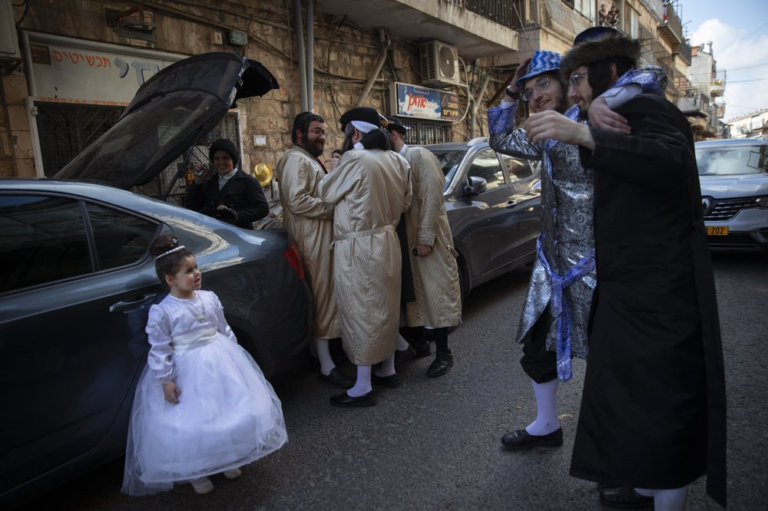In this weeks parsha we find the incident with Dina, the daughter of Yaakov, who was violated by Shechem. If you were to look at the pasukim (34; 5-7) you would find it a bit perplexing. When Yaakov heard that his daughter was violated, he kept quiet until his sons returned from the field. Then, ‘Chamor, the father of Shechem, came to talk to Yaakov (34; 6).’ Immediately following that, the pasuk says that when the bnei Yaakov returned and they heard (what had happened) they became sad. Then, they ‘became angry because a disgusting thing was done with the daughter of Yaakov-and such a thing is not done.’
We see that after Yaakov heard what had happened to his daughter, Chamor came to speak to him. But the Torah doesn’t state what the nature of the conversation was. Why the omission as to what the discussion was about? Why would the Torah go out of its way to tell us that Chamor went to talk with Yaakov, but not tell us what they spoke about?
Additionally, it seems there were two issues the bnei Yaakov had, judging from their two reactions. Firstly, they were sad and then, they expressed anger. Following that, the pasuk explains the two reasons why they felt the way they did. The first reason being, that something disgusting was done to the daughter of Yaakov. The second reason was because ‘such a thing is not done (34; 7).’ Why does the pasuk mention two separate reactions; we understand that she was violated-why was there a need for the two different explanations?
Chasam Sofer offers an answer and says; imagine a person who says something embarrassing to a respectable individual. There are two types of reactions that the person can have. One is that he can avoid the person he embarrassed because he feels bad and finds it very uncomfortable to be around him. The other reaction is to ignore the whole incident and the next time he meets that person, to walk right up to him and start a conversation like nothing ever happened. What the latter reaction demonstrates is the lack of respect he has for that person as he shrugs the whole incident off.
Says Chasam Sofer that was the case with Chamor. He walked right over to Yaakov like nothing happened. He didn’t recognize the severity of his sons actions! He had a complete disregard to the whole episode. Such a person, a person who doesn’t realize what he did wrong, will never change.
There’s another idea, to explain the different reactions of the pasuk, which can be brought out by a famous story involving the Beis Halevi. One cold wintry night, while the Rov was traveling in clandestinely, he came to a hotel hoping to stay the night. The innkeeper opened the door and replied that he was sorry but he had no room. The Rov begged and begged and finally the innkeeper told him that he can only give him a small corner where he could lie down. He went on to tell the Rov that the kitchen was closed and he can’t get him anything to eat or drink. The Rov complied and lied down in the corner of the room, beneath the staircase.
About an hour later, there is a whole commotion. The lights went on, the kitchen was opened and there was food. Suddenly a Rebbe walks in with his entourage and is escorted to the head of the table. Instantly the Rebbe noticed the Beis Halevi in the corner. He stands up and asks him, what are you doing in this corner?! The innkeeper, watching all this, realized his mistake and he ran over to the Beis Halevi to ask forgiveness. The Beis Halevi answered him and said as follows: ‘Had you treated me like you would treat a regular yid, it would’ve been fine and I would have no complaints. But now that you didn’t even treat me like a regular yid, you’re going to get punished as if you didn’t treat me like the biggest Rebbi from the most respected city in the world!
The same idea is found here. Had Shechem treated Dina like a regular person, and not violated her, although it’s not up to par with her standards and we don’t condone any of his behavior, we would have just been angry, perhaps not upset. But he didn’t even do that! Because of that, he got punished for not treating her like she was part of the Shivtei Kuh and for not respecting where she came from and what she stands for!
Continues the Beis Halevi the same applies to each of us. Take a Ben Torah, usually held to higher standards by the way they conduct themselves-living by the rules of Shulchan Aruch. Occasionally you have a Ben Torah who acts like a regular Jewish person will act-not necessarily up to par from what you would expect from a Ben Torah. But the moment that person stoops lower and lower-acting like a relatively simple Jew (or even an am ha’aretz), Hashem punishes him as if he’s not acting up to par the way a Ben Torah is supposed to act. The avlah for that Ben Torah-for not acting the way he’s expected to act-is far greater than that of a simple Jew who merely isn’t holding on that level.
Keeping this in mind, we should all be zoche to live up to our standards-the standards of a true Ben Torah- and to never stoop below each of our individual expectations.










